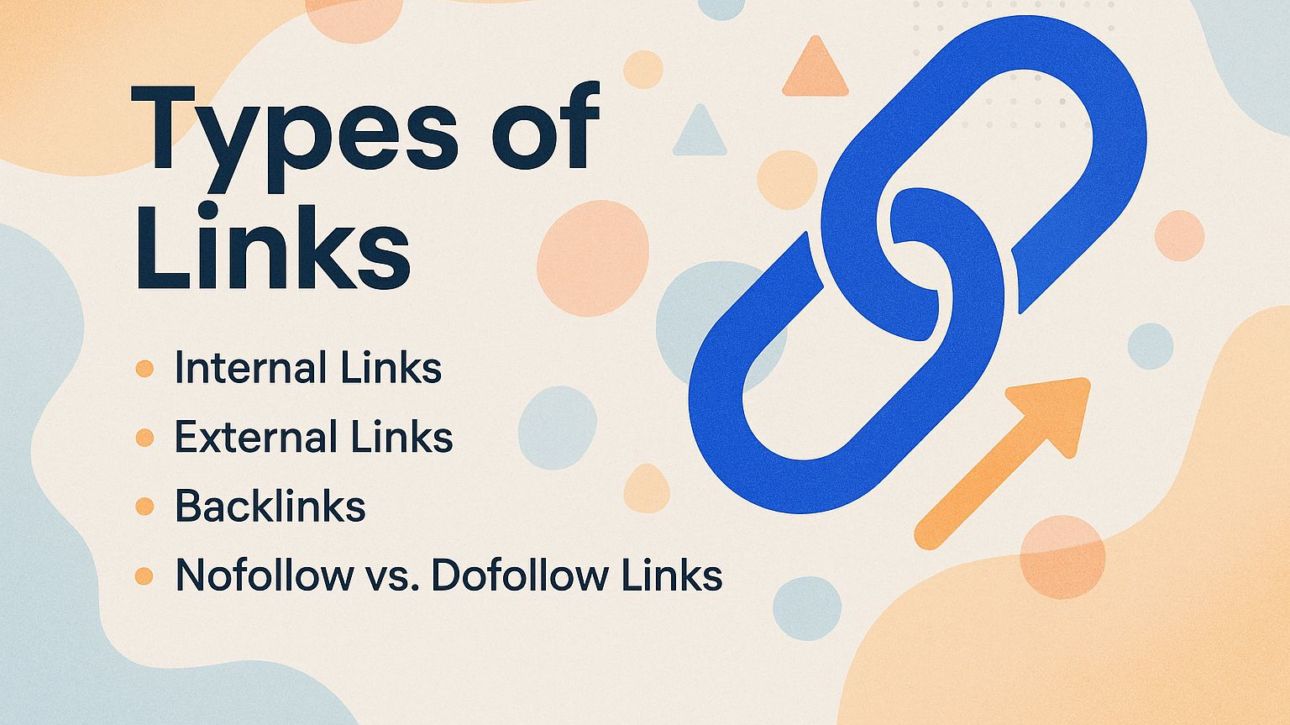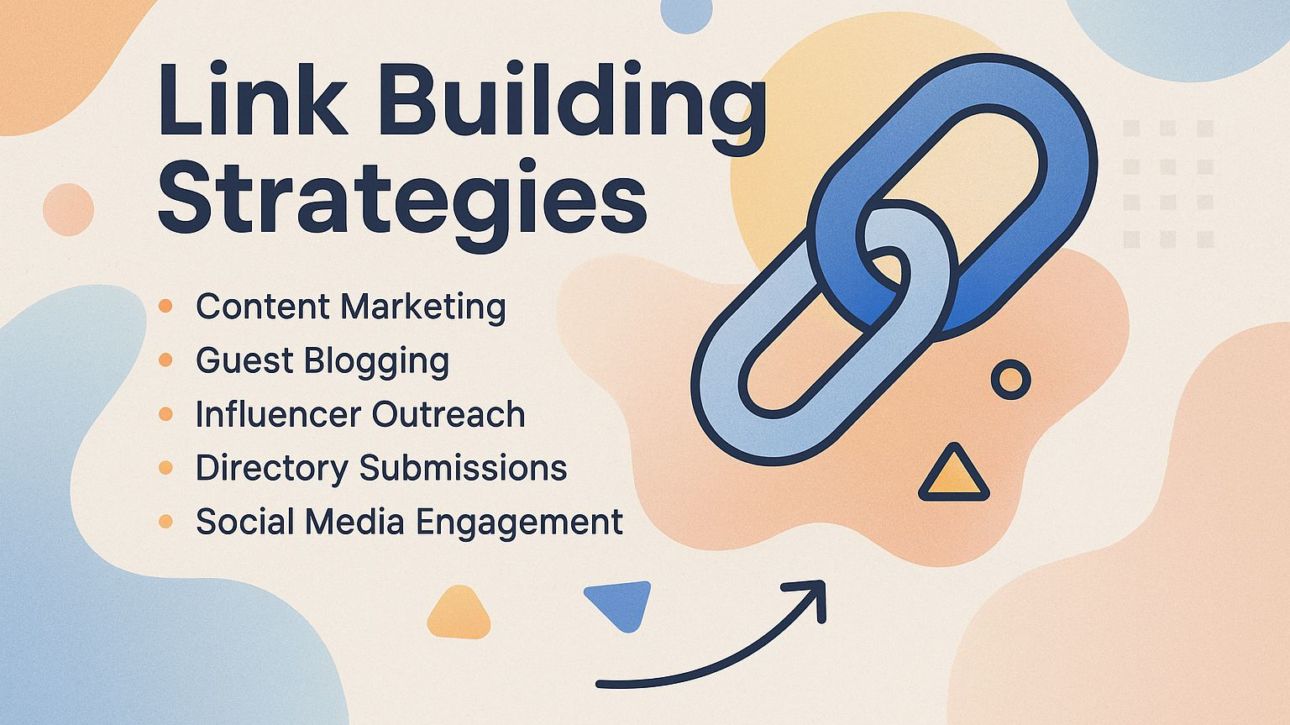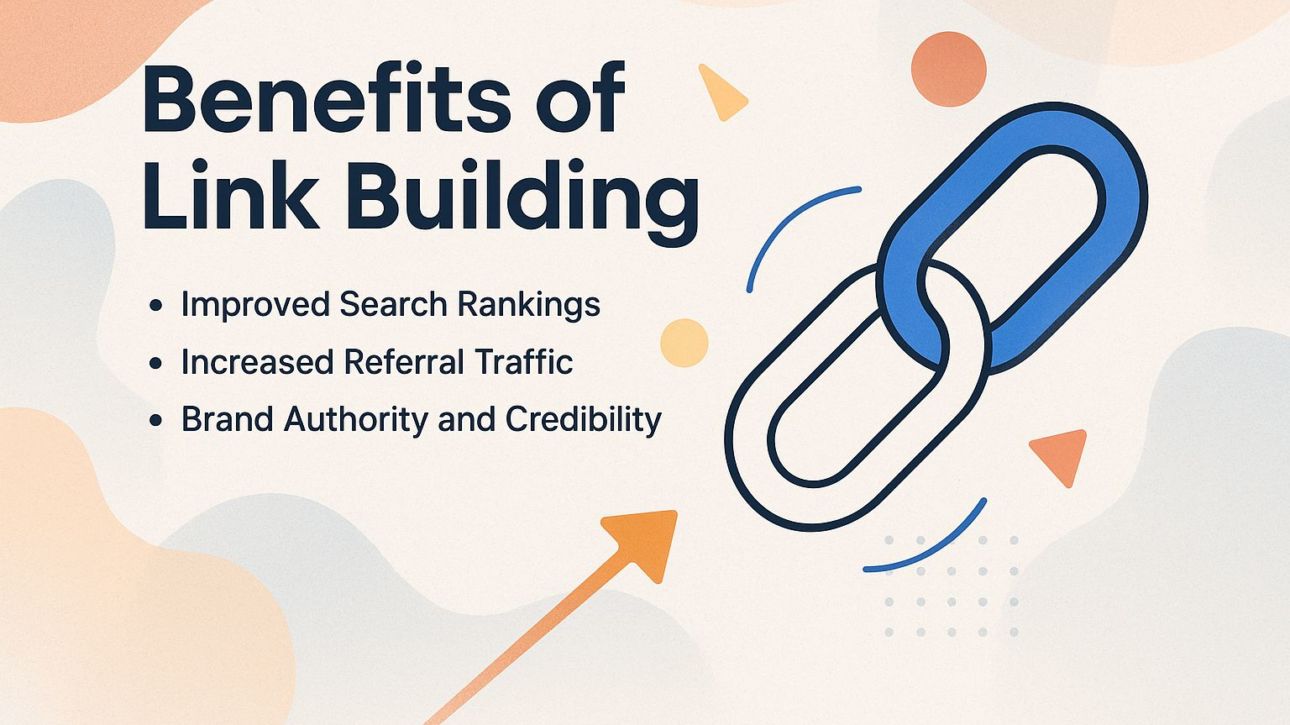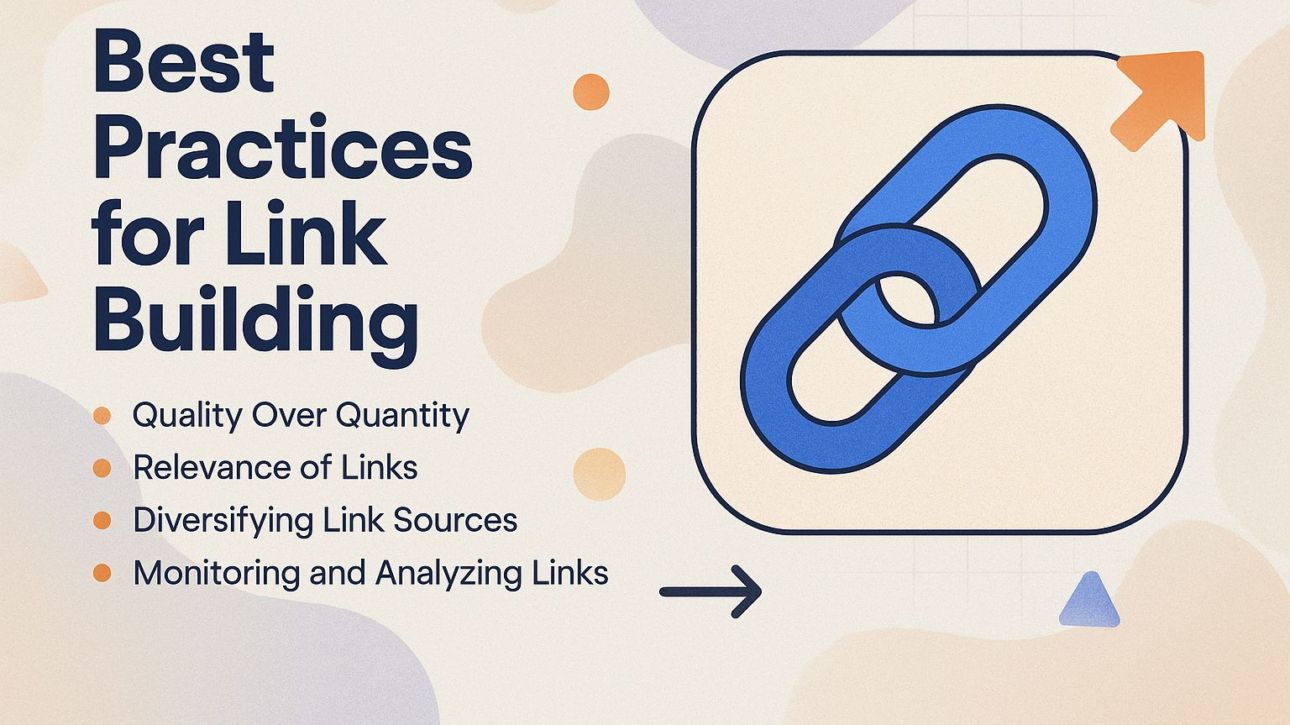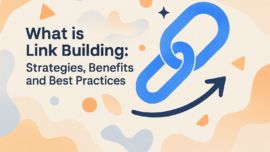
Building links is an important part of any good SEO plan, necessary for improving your site’s presence on search engines such as Google. By learning how to get links in a planned way, you can greatly improve your search engine optimization efforts. In this article, we’ll look at different ways to build links, the advantages they offer, and how to successfully apply them to get the best outcomes. Find out how link building can improve your online success!
Key Takeaways:
- Link building is the process of acquiring quality, relevant backlinks to a website to improve search rankings and increase referral traffic.
- Strategies such as content marketing, guest blogging, and influencer outreach can help build a strong link profile.
- Best practices for link building include prioritizing quality over quantity, diversifying link sources, and regularly monitoring and analyzing links.
Contents
1. Definition of Link Building
Link building means getting links from other websites to your own, which helps to improve your site’s reputation and make it more noticeable on search engines.
Links significantly influence search rankings because they act as endorsements from other sites. For instance, if a high-authority site links to your page, search engines interpret that as a vote of confidence, which can improve your PageRank.
To track your link-building success, monitor metrics such as:
- Domain authority
- The quality of linking sites
- Organic traffic increases
Tools like Ahrefs or Moz can help you analyze these metrics, allowing you to change your linking strategy based on data-driven advice.
2. Importance in SEO
Link building is important for SEO because it influences how search engines rank sites, giving them credibility and helping them appear in top search results. Good backlinks improve your website’s authority, which Google considers important for ranking.
For example, a study by Ahrefs found that over 90% of webpages receive no organic traffic from Google. Websites with authoritative backlinks report significantly higher visibility.
To build effective links, consider:
- Guest blogging on reputable sites
- Utilizing tools like Moz or SEMrush to identify potential targets
Creating content that people want to share, like infographics or research studies, can help get backlinks and increase your site’s visibility.
Types of Links
Knowing the types of links is key to creating a link-building plan that improves SEO results. For instance, understanding the impact of different link attributes, such as nofollow links, can enhance your strategy by highlighting which links influence search engine rankings.
1. Internal Links
Internal links join different pages on your site, assisting search engines in navigating your site and helping users find their way.
To improve internal linking, use clear anchor text that shows what the linked page is about. For example, instead of a generic “click here,” use “read our guide on SEO techniques.”
Try to link to more detailed pages on your site, like individual blog posts or resources, instead of only linking to your homepage.
Consider mapping out a plan with key pages in mind, ensuring that each one is linked within your content at least a few times. This strategy improves SEO and motivates users to check out more of your content.
2. External Links
External links point to pages on different websites, enhancing your content’s credibility and providing users with additional resources.
To effectively implement external links, start by identifying reputable sources related to your content. Use tools like Ahrefs or SEMrush to check domain authority.
For instance, linking to a well-regarded academic paper can substantiate your claims. Aim for relevance; a tech article referencing a major tech publication strengthens the user’s trust.
To maintain a clean user experience, set links to open in a new tab, ensuring that users remain on your site. This strategy increases your page’s authority and improves the reader’s experience.
3. Backlinks
Backlinks, also known as inbound links, are important for improving your position in search results because they tell search engines that your content is important and reliable.
To acquire high-quality backlinks, focus on these actionable strategies:
- Start by creating helpful content that people want to share, like thorough guides or infographics. These resources tend to get links on their own.
- Next, engage in guest blogging on reputable sites within your niche, ensuring you provide authentic value in your contributions.
- Think about emailing influencers or industry leaders with customized messages, offering them information or opportunities to work together.
- Use tools like Ahrefs or Moz to look at competitor backlink profiles and find possible links for your own website.
4. Nofollow vs. Dofollow Links
Dofollow links pass on link power and influence search rankings, while nofollow links do not contribute to SEO but can still drive referral traffic.
Dofollow links are important because they improve your site’s trustworthiness. They show Google that your content matters. Getting dofollow backlinks from trusted websites can greatly improve your rankings.
In contrast, nofollow links, like those from social media or blog comments, while not directly impacting SEO, can generate steady referral traffic. Use nofollow links strategically for user-generated content to prevent spammy backlinks, while focusing on dofollow links in guest posts or collaborations for maximum SEO benefit.
Link Building Strategies
Good link building can make your site more trustworthy, improve its search rankings, and bring in more visitors. For a comprehensive guide on this topic, check out our insights on how to build backlinks for SEO.
1. Content Marketing
Producing top-notch content that people want to share is a great way to get other websites to link back to your site because they want to connect to useful resources.
To make content that others want to link to, begin by thinking of subjects that your audience cares about. Consider creating infographics to present complex information clearly or producing thorough guides on particular subjects.
For example, BuzzSumo highlighted how an infographic detailing ‘The Benefits of Remote Work’ generated over 500 backlinks and was shared widely on platforms like LinkedIn.
Use tools such as Canva for design and SEMrush for analyzing competitor backlinks, ensuring your content stands out while enhancing its potential for shares and links. If you’re interested in optimizing your efforts, exploring off-page SEO strategies can provide even greater insights into effective link-building practices.
2. Guest Blogging
Guest blogging allows you to contribute content to other websites, earning backlinks while establishing credibility and reaching new audiences.
To identify relevant guest blogging opportunities, start by searching for websites in your niche that accept guest posts. Use tools like Google with queries such as “[your niche] guest post guidelines” or “write for us [your niche].”
When you find a site, evaluate its domain authority using tools like Moz or Ahrefs. Once you have a target, create a unique offer that shows how your skills fit with their audience. Research shows that well-researched pitches can achieve a success rate of around 53% for publication, so invest time in tailoring your approach.
3. Influencer Outreach
Working with influencers in your field can give your content important backlinks and greatly increase your brand’s presence online.
To connect with influencers, begin by sending customized emails that refer to their latest projects. For example, if you appreciate an influencer’s blog post, reference it in your message to show genuine interest.
Use tools like BuzzSumo to find key influencers in your field, and follow them on social media sites like Twitter and Instagram. This lays the groundwork for meaningful connections.
Successful collaborations often arise from common interests; for instance, a health food brand that partnered with a fitness influencer saw a 40% increase in traffic after a single Instagram post.
4. Directory Submissions
Submitting your website to relevant directories can increase visibility and generate backlinks, especially for local SEO efforts.
To get started, focus on these reputable directories:
- Google My Business
- Yelp
- Yellow Pages
First, create a profile on Google My Business, providing your business name, address, and phone number. Next, list your site on Yelp by claiming your business and soliciting reviews from customers.
Register with Yellow Pages by filling out your business information. Make sure your NAP (Name, Address, Phone) is the same on all platforms to get the most SEO benefits. This process typically takes around 30 minutes per directory but pays dividends for your online presence.
5. Social Media Engagement
Connecting with people on social media can increase visits to your website and create helpful links when your content is shared.
To effectively engage audiences, focus on creating interactive content such as polls, quizzes, or live Q&A sessions. Use tools like Poll Everywhere or Slido to interact with your audience right away.
On Twitter, use Twitter Analytics to monitor how people interact with your posts by checking for retweets and replies to see how well your content connects with the audience. To track likes and shares on Facebook, use the Analytics tool.
LinkedIn’s engagement can be assessed through post interactions and viewer demographics. Aim for a 2-5% engagement rate as a benchmark to measure your success.
Benefits of Link Building
Link building provides many benefits that can greatly improve your website’s ranking and reputation in search engines. This process is integral to off-page SEO, which you can explore further through our analysis on off-page SEO strategies and best practices.
1. Improved Search Rankings
Effective link building can improve your website’s search rankings by raising its credibility, leading to more visibility and traffic. To improve your link building strategy, use tools like Ahrefs, SEMrush, or Moz.
Ahrefs provides a complete site review, helping you find backlink chances by looking at your competitors’ links. For instance, tracking keywords with SEMrush can reveal which pages attract the most backlinks, enabling you to replicate their success.
Moz’s Link Explorer provides details about domain authority, helping you find stronger links. By using these tools together, you can significantly increase your link building success, potentially raising rankings by over 30% within several months.
2. Increased Referral Traffic
Backlinks can lead to significant increases in referral traffic, driving new visitors to your site from related and authoritative sources.
For instance, a well-placed backlink on a high-traffic site can lead to a 30% increase in visitors within a month.
Using tools like Ahrefs or Moz to find websites with strong authority in your field can make it easier to manage your outreach tasks. Create useful content or provide guest posts that include your link naturally.
Using Google Analytics to track referral traffic helps you see how well each backlink is working, so you can improve your plan as you go.
3. Brand Authority and Credibility
Creating a strong backlink profile improves your brand’s authority and trustworthiness, which builds confidence with both users and search engines.
To reach this goal, concentrate on different approaches.
- Write guest posts on well-known websites related to your field. This helps get more links and makes your work more visible. Use tools like Ahrefs to study competitors’ backlink profiles and find sites you can contact.
- Create useful content that naturally attracts links, such as thorough guides or visual charts.
- Think about using social media to share this content and connect with industry leaders. Their support can greatly improve your brand’s trustworthiness.
Best Practices for Link Building
Using good methods in link building makes sure your work is long-lasting and successful, bringing you the most benefits. To enhance your strategy, consider the significance of link juice, a crucial aspect that can dramatically impact your SEO results.
1. Quality Over Quantity
Focusing on acquiring high-quality backlinks rather than a high quantity of low-quality links is critical for long-term SEO success.
To evaluate link quality, use tools like Ahrefs or SEMrush. These tools offer information about domain strength, website visitors, and backlink details.
For instance, check the Domain Rating (DR) on Ahrefs; a score above 50 often indicates a reputable site.
Ideal link sources include well-established publications like Forbes, industry-related blogs, or academic journals, as they provide relevant context and authority.
Focus on writing guest posts or working with these sites to naturally gain good backlinks that can improve your SEO plan effectively.
2. Relevance of Links
Links must relate directly to the content they are in to improve their usefulness and SEO benefits.
- To identify suitable linking opportunities, start by analyzing your competitor’s backlink profiles using tools like Ahrefs or SEMrush.
- Search for pages that have links to related content and send them an email that shows how your resource is relevant.
- Use platforms like Help a Reporter Out (HARO) to connect with journalists looking for expert views related to your field.
This proactive method enhances link quality and builds industry relationships, increasing your online presence.
3. Diversifying Link Sources
A diverse backlink profile is essential for a natural link profile, helping to mitigate risks associated with algorithm changes.
To achieve a varied backlink strategy, consider reaching out to a mix of platforms and industries. For example, complement your tech blog’s links from industry-related sites with links from educational institutions, local news outlets, and relevant lifestyle blogs.
Tools like BuzzStream can facilitate outreach campaigns, allowing you to track communications and measure success. A recent campaign I managed involved securing guest posts on a culinary blog and collaborating with a nonprofit, resulting in a 30% increase in referral traffic.
Prioritize quality over quantity for more sustainable results.
4. Monitoring and Analyzing Links
Regular monitoring and analysis of your backlinks can help you maintain a healthy link profile and identify areas for improvement.
To fully check your backlinks, use tools such as Semrush, Ahrefs, or Moz. These platforms allow you to track key metrics such as Domain Authority, anchor text distribution, and link growth over time.
Begin by exporting your backlink data and assessing which links are toxic or from spammy sites, utilizing tools like Google’s Disavow Tool to manage harmful links. Watch the number of new backlinks you get. Try to increase them by at least 10% each month to keep your link building strong.
Common Mistakes to Avoid
Avoiding common mistakes in building links is important for maintaining a healthy backlink profile and ensuring your SEO efforts are effective.
Buying Links
Purchasing links can result in harsh punishments from search engines, hurting your site’s credibility and entire SEO plan.
For example, Google penalized sites involved in link buying during its Penguin updates, impacting rankings significantly.
Instead, focus on ethical link acquisition methods, such as guest blogging on reputable sites in your niche or creating high-quality, shareable content that naturally attracts backlinks.
Utilizing tools like Ahrefs or Moz can help you identify potential websites for outreach. By focusing on real connections and meaningful input, you can create a strong set of backlinks without facing penalties.
Frequently Asked Questions
1. What is Link Building?
Link building is the process of acquiring backlinks to your website from other websites. These backlinks act as “votes” for your website and help improve its search engine rankings.
2. What are the benefits of link building?
Link building can bring various benefits to your website, including higher search engine rankings, increased organic traffic, and improved brand visibility and authority.
3. What are some effective strategies for link building?
Some effective strategies for link building include creating content that is high-quality and likely to be shared, contacting other websites to write guest blogs, and using social media to promote your content and interact with other websites.
4. What are the best practices for link building?
Some effective methods for building links include concentrating on appropriate and well-respected websites, steering clear of harmful techniques, and frequently checking and revising your backlink profile to maintain good links.
5. Why is link building important for SEO?
Link building is an important aspect of SEO as search engines use backlinks as one of the key factors in determining a website’s authority and relevance. Quality backlinks can help improve a website’s search engine rankings, leading to increased visibility and traffic.
6. How can I measure the success of my link building efforts?
One way to measure the success of your link building is by tracking the increase in search engine rankings and organic traffic to your website. You can use tools to check your backlink profile and confirm that the links are suitable and of good quality.


